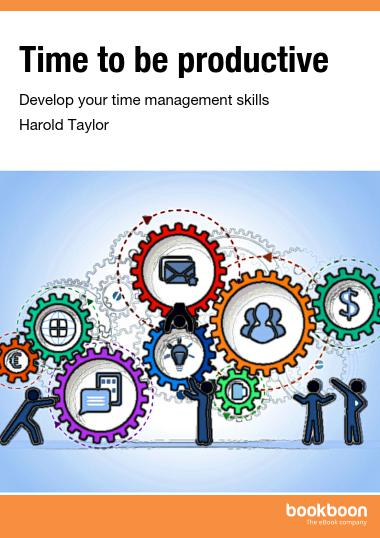Time Management: Budget Your Time – It’s More Important Than Money!

When you lose all your money, you can always earn more. But when you lose all your time, there is no more to earn. When your time is gone, you’re gone. Time is your most precious resource. Budget it well.
How do you budget your time?
The most important time management tool is your planner. Choose it well; because it’s directs your life. Whether digital or paper, it should facilitate planning seven days per week from early morning until late evening – with adequate space to schedule your important projects and activities – plus a to do list for those less important tasks that should be completed as well.
Time management involves making good choices.
You can’t do everything that you would like to get done. The day you die, you will have unfinished projects, unanswered emails and a list of To do’s not done. The key is to prioritize – to choose those projects and activities that will achieve your personal goals and further your purpose in life. These will involve family and friends as well as business and career. Take control of your life, reduce stress and improve both efficiency and effectiveness.
Make time for the things that count.
Your planner is more than a calendar, which simply tells you what day it is – and more than a “To do” list, which simply reminds you of everything you want to get done. It is a plan – a budget – for optimizing your use of time. A “To do” list represents intentions. Scheduled blocks of time in your planner for specific projects and activities represent commitments.
Grouping similar tasks together increases efficiency.
Batching, which refers to scheduling blocks of time in your planner for tasks that are similar in nature and require similar resources, can be used for shorter tasks.
I prefer to schedule work in 90 minute blocks of time, which are reasonable lengths of time to be unavailable to others, and seem to follow the waves of high energy throughout the day. But smaller tasks require less time, and anything down to a half hour would be feasible. Anything less than that defeats the purpose of batching, and the benefits are few.
Examples of the types of tasks that lend themselves to batching are back to back meetings or interviews, reading magazines, blogs, websites, books and other resources in search of information on a specific topic; posting and reviewing material on social media sites such as Facebook and Twitter; and organizing specific areas of your home or office.
Forming the habit of batching reduces the practice of multitasking, and eliminates time wasted and things overlooked that occur when you constantly transition between tasks throughout the day.
Guidelines for scheduling time in your planner tasks and projects.
- Schedule only priority activities and tasks in your planner. Everything else belongs on the “To do” section of your planner.
- For longer tasks, schedule a maximum of 90 minutes at any one time to work on them.
- Allow up to 50% more time than you think the task will take. There will be interruptions and distractions, regardless of your efficiency.
- Depending on your job and lifestyle, block off 20% to 80% of your total work time each week for these priorities. You will need time for priorities of an urgent nature that inevitably pop up during the week.
- These appointments with yourself to work on priority projects should only be displaced by something of even greater importance.
- Only low-priority tasks should be placed on a “To do” list. Those unable to be completed during spare time can be copied onto your next week’s planner page. Anything that has to be copied over more than once should be deleted.




